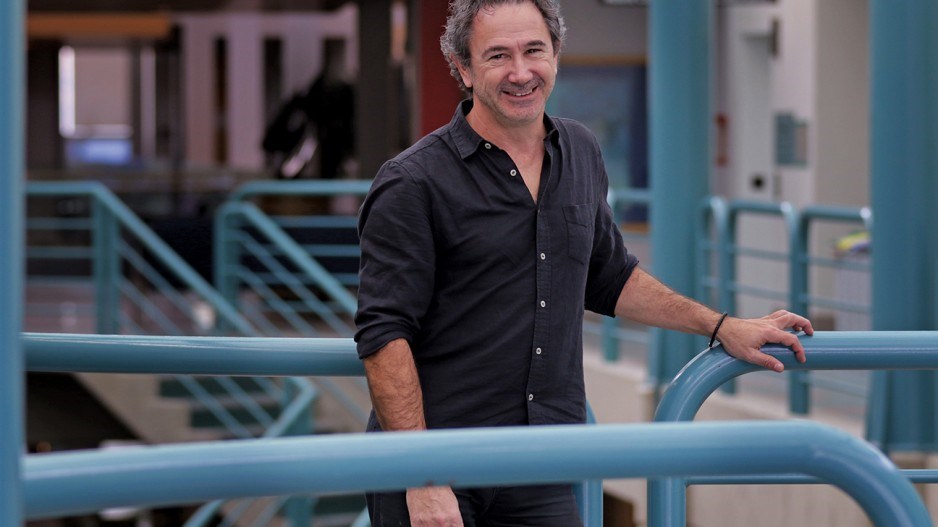After the Second World War ended in 1945, a wave of immigrants began flooding into Canada as the country under the William Lyon Mackenzie King government accepted thousands of displaced people.
Among those seeking a better life across the Atlantic Ocean were many fleeing southern Italy, which had been physically and economically devastated by the war.
Eugene Fiume, the new dean of applied sciences at Simon Fraser University (SFU), is a direct product of this migration. His parents are originally from southern Italy and settled in Scarborough, just east of Toronto.
Born in 1957, Fiume said that when his parents arrived in the area, Greater Toronto was beginning to feel tensions between its older population that traced its roots to the U.K. and new immigrants who began to arrive from various countries across Europe and the Caribbean. He said the city was a bubbling melting pot that seemed ready to boil over at any moment.
“Toronto in that day was very much an Anglo-Saxon culture,” he said, noting he didn’t start speaking English until he was six years old. “So the first assimilations were pretty interesting – and tough.”
Fiume said a large part of his childhood was defined by his being part of an immigrant community, as his family and fellow Italian-Canadians sought to assimilate while also maintaining parts of their culture. In this goal, they were successful, he said. “I find it’s still something I’m really proud of. [Toronto] has found a way to find a sense of unity while also maintaining its diversity.”
For many postwar immigrant families, money was tight, and Fiume’s was no exception.
But after he graduated from high school in 1976, various federal government grants and scholarships helped him complete his bachelor of mathematics from the University of Waterloo in 1981 and his master’s degree and PhD in computer science from the University of Toronto. In 1986 he did post-doctoral work at the University of Geneva in Switzerland before returning home to take a faculty position at the University of Toronto.
Fiume, who specializes in visual modelling and computer graphics, has primarily worked in academia except for a brief stint in the research department at software maker Alias|Wavefront.
“That was very eye-opening for me,” he said. “Being in industry helped me understand more about first the industrial climate and how to understand technology transfer. How do things move from industry to university and sometimes the other way around?”
Fiume returned to the University of Toronto, where he became director of the master of science in applied computing program, working there up until his move to the West Coast last year. He said he considered the University of British Columbia (UBC) but it was SFU’s push toward melding academia with the business community that persuaded him. The university has multiple programs, among them the Ken Spencer Entrepreneur Incubator and the professional master’s program in big data, aimed at helping students to become entrepreneurs and capitalize on Vancouver’s burgeoning tech sector.
The faculty of applied sciences at SFU has about 2,000 undergraduate and 400 graduate students, and receives about $16 million annually in research money. Fiume has an ambitious plan for the faculty that’s aimed at keeping pace with the local technology sector’s growth and establishing the school among the top 25 in the world.
According to the Vancouver Economic Commission, 101,000 people across the province work in the technology sector, for approximately 7,000 companies. This includes 75,000 employees in Vancouver alone, generating more than $23 billion in revenue and $15 billion in gross domestic product. Despite that growth, Fiume said, most of the talented students in the field of computer sciences are still poached to work south of the border.
“My worry is they continue to go to Silicon Valley,” he said. “We need to offer them those careers here.”
Former UBC president Arvind Gupta, who was recently a visiting professor at the University of Toronto’s computer science department, said Fiume is the perfect pick to lead the academic side of the province’s technology boom.
“The tech sector in B.C. is aligned very well with Eugene’s expertise, both in terms of his own research but also in his vision of where things are going,” he said. “It needs leadership at all levels, and Eugene is the perfect person to provide it.”
Fiume said he’s also aware of the ethical issues arising from new technology, particularly with the use of robots and the rise of automation. New technology emerging from universities like SFU is putting nearly half the jobs in North America under threat of replacement in the coming decades, according to one U.S. study.
“Automation is in the here and now causing considerable social disruption,” he said. “And it is something that we need to understand, and understand the consequences of those people who are disenfranchised and dislocated by bringing new technology in.”
He said he wants his students to start asking themselves now about the ethical implications of technological innovation so they are ready to deliver answers when they enter the workforce.
Students must seek “a way to provide these [displaced workers] with the capacity to take on new roles within society,” he said. “This is my main concern and should be the main concern of any technologist.”




